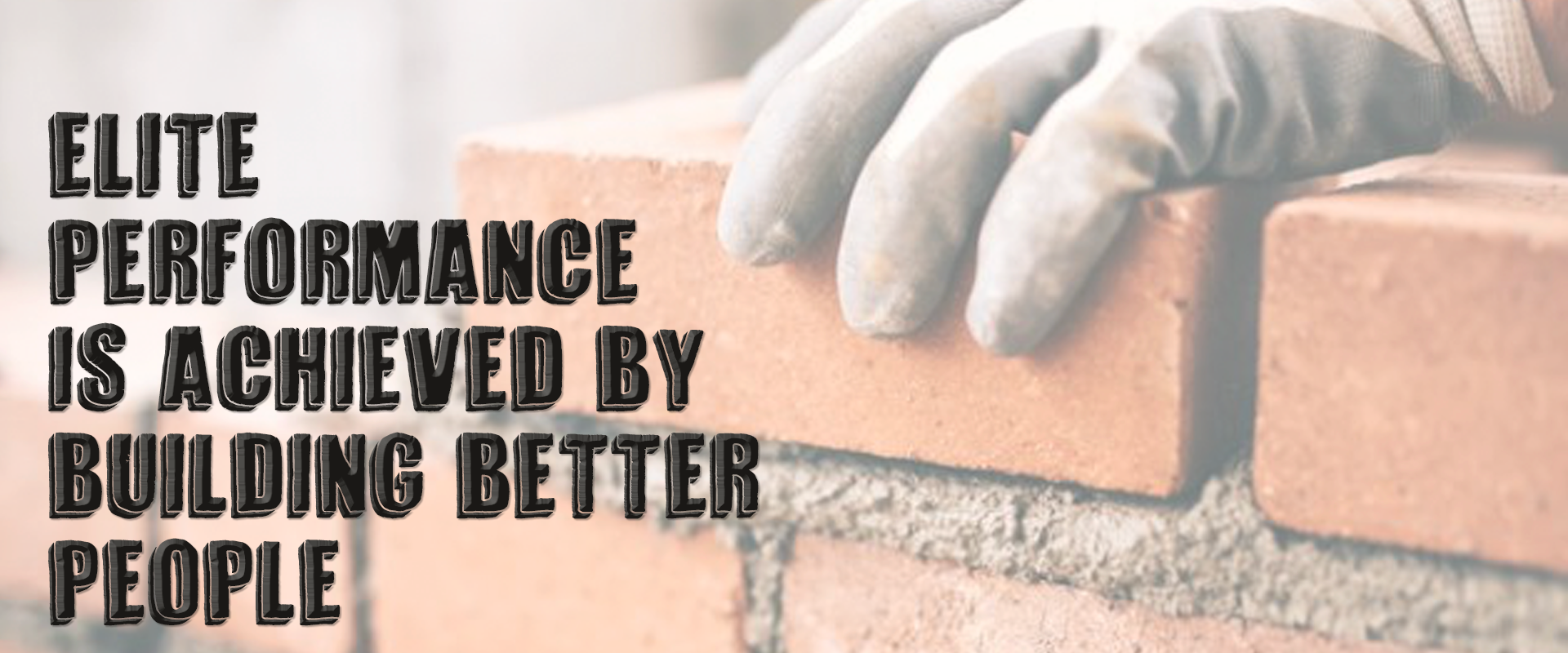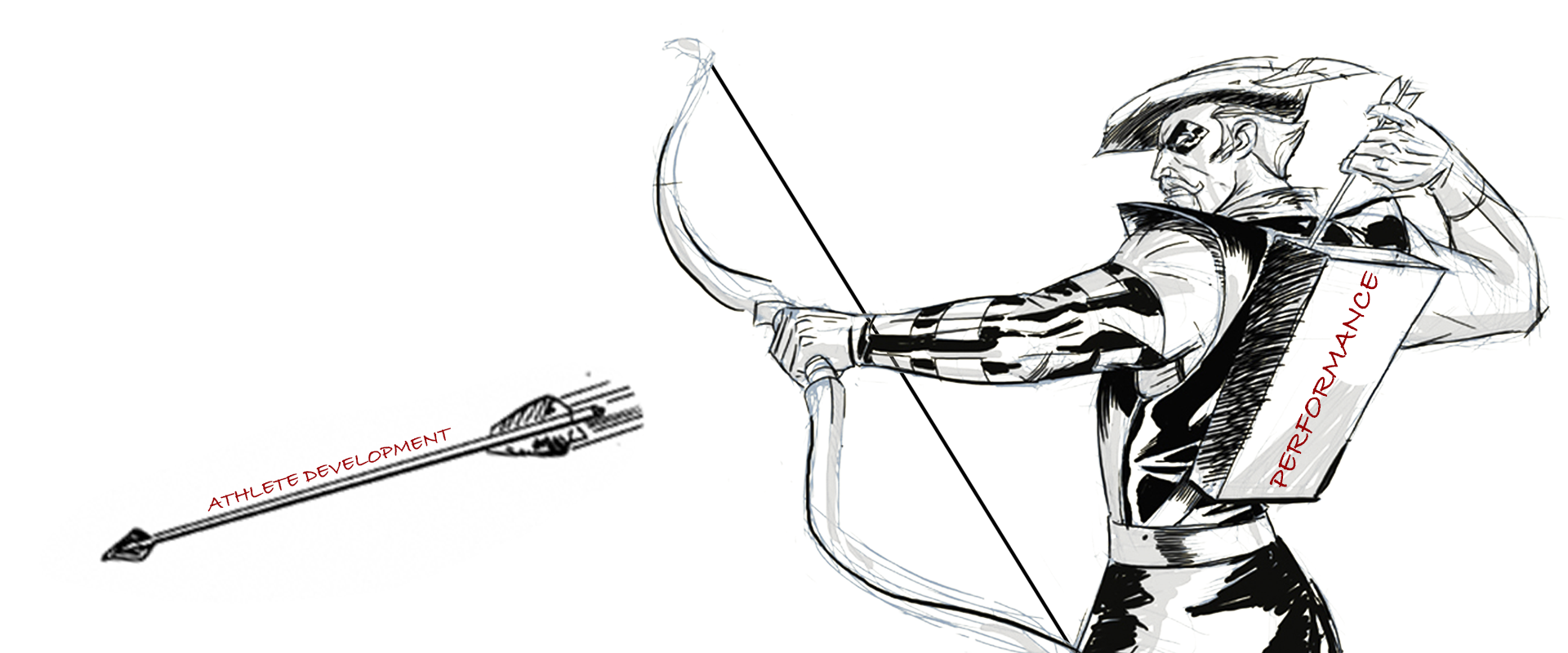ATHLETE DEVELOPMENT EXCITEMENT: ARE CLUBS FINALLY GETTING IT?
If you care about athlete development, it may be time to get excited. Or at least cautiously optimistic. Why, you may ask? Let me tell you.
There is an inkling that perhaps, just maybe, we can see the thin edge of the wedge being jammed into the metaphorical trunk lid which has been sealed shut to the idea that athlete development is a performance tool.
Yes, I said it. I think it is happening. Why is this exciting? Let me give you a little backstory.
A wedge. Note the thin edge of it.
I didn’t see it immediately (the relationship between athlete development and performance), but about 12 years ago a colleague of mine was doing research on our shared interest in athletic identity (still great work Andy Madden). The research suggested that athletes that have mediated athletic identities were more likely to be viewed as consistent and reliable performers. Much of the research in the field at the time noted that athletes with high athletic identities would be prone to difficulties in transition from sport (which makes sense and continues to hold true). However, the impact of high athletic identity on athletic performance - in the now - was never addressed.
“a player recently told me his team, with a payroll in the mid 8 figures, refused to hire a team masseuse for $200,000 per year ”
It seemed like a strange gap. If we are talking about the elite of the elite in the athletic world, how in a million years are we not talking about how they perform? Coaches, general managers, owners, agents and the athletes themselves all care deeply about performance. How could they not see the value of having athletes having a healthier more balanced relationship with their sport?
At the time, many of my athlete development colleagues from virtually every league, began to talk about the difficulty in explaining the value of athlete development to their managers and bosses because it was difficult to tie directly to performance. The general consensus was if somehow we could directly tie performance to athlete development services, we’d be welcome with open arms into the performance side of the athlete management house.
Several organizations have made some awesome strides to answer this question. The longitudinal work done by the Women’s Tennis Association (WTA) is nothing short of ground breaking. Studies by the Australian Football League Players’ Association and recent work by the National Rugby League and NRL Players Association all point to the relationship. So what's the problem? Namely; a lot of confounding variables. Does athlete development REALLY impact performance? Perhaps instead it is the hotshot new coach or the advanced analytics or new training method. Maybe. But consider this, studies point to the following benefits to athletes who engage in athlete development activities (nomenclature varies by study and league but I will use the catchall phrase of athlete development activities):
Reduced stress
Reduced anxiety
Moderated athletic identity
Less trepidation or concern about career conclusion/transition
Better managed finances
Greater openness to education
Longer careers
More games played
More time played during those games
More money earned
Not a bad list. However, if you scrub ‘athlete’ from the equation and insert stock broker or insurance adjuster, it becomes more common sense. If I am more balanced in my approach to my career, suffer from less stress and anxiety and I am more open to education, I may be more likely to perform better.
Circling back to my initial statement about my cautious excitement and optimism. We are beginning to see major professional clubs and large college athletic departments look very closely at implementing services, resources and staff to help athletes excel away from the playing surface. This is a big development because it means they are beginning (maybe) to see athlete development services as a tool to enhance performance. It’s sports and wins matter!
There are some caveats to this undoubtedly. We’ve seen development professionals hired that are really just coaches in disguise. We’ve also seen people hired that are woefully unprepared or not knowledgeable about the realities of working with major professional athletes. And some organizations refuse to get it or don’t care (a player recently told me his team, with a payroll in the mid 8 figures, refused to hire a team masseuse for $200,000 per year - so one could wager that athlete development is likely quite low on their totem pole).
However, athlete development when done well and when tailored to meet both organizational and individual outcomes can provide enormous potential payoffs on and off the playing surface. So yeah, I’m excited and cautiously optimistic that finally, more teams are going to be drawing the athlete development arrow out of their performance quivers. Everyone stands to benefit. The players, fans, owners, coaches and communities as a whole. So maybe you can get excited too.
Game Change was founded in 2011 to serve and enhance the athlete development needs of major professional and elite sport organizations and athletes. Game Change specializes in customized research and assessment services, the development of applied interventions and resources designed to provide long-term positive outcomes for organizations and individual athletes. Game Change believes strongly in sport as a catalyst for societal change and adheres to the philosophy of ‘changing the world one athlete at a time’.



